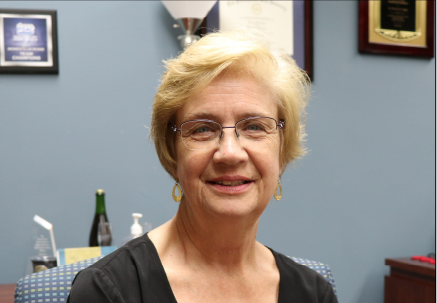
Danielle Martin
Contributing Writer
Sexual assaults happening on campus, unfortunately, may not surprise anyone, but an entire season named for its serial attacks might. This time called the “Red Zone,” is a period between freshmen arrival into Thanksgiving break that is notorious for high rates of sexual misconduct which can range from stalking to rape.
According to RAINN (Rape Abuse and Incest National Network), 1 of 6 women, and 1 of 10 men experience sexual misconduct. 21 percent of transgender, genderqueer or gender nonconforming individuals experience sexual misconduct.
“In the fall, it has to do with people being in a very vulnerable position because they don’t know the campus or the culture and they’re wanting very much to come in and be accepted,” said Dr. Doreen Tobin, vice president of Student Affairs and Title IX Coordinator. “They can easily be taken advantage of.”
Tobin and Laura Suits, Coordinator of Wellness Education and Prevention, shared eye opening views. Both were well informed and active in their pursuits to educate the student body on sexual misconduct.
They have organized events and posted materials campus-wide on useful resources for student protection. For instance, bathroom stalls might sport a sign saying “Consent is sexy Mandatory!”
They’ve shared a goal to shift from a culture that trivializes sexual abuse to one of mutual respect and open communication. However, this can only happen with education.
So who is in danger? And what can survivors do about their situation? Though Dr. Tobin pointed at freshmen, anyone can be taken advantage of.
Fortunately, help shines like a beacon.
First and foremost, students have the police.
“The main focus is that that person gets the help they need and knows they didn’t do anything wrong,” said Cpl. Flaherty of campus police.
Oftentimes alcohol and drugs have been involved when misconduct occurred making the victim feel responsible for their circumstance. “They feel that it is their fault. There is shame, victim blaming.”
Campus police and security are always on patrol in case of an emergency.“We’re approachable, we’re out there,” Corporal. Michael Flaherty added.
Dr. Tobin said that student affairs also offered aid in terms of counseling, accommodations and other options.
“Whenever I sit with a student I’m talking about health and safety first,” she said. “I’m obligated to talk to them if they want to pursue a case either from a student conduct perspective or from a legal perspective.”
On top of educating people, Cpl. Flaherty spoke of preventative measures. They have people on campus trained in Alcohol, Tobacco and Other Drug (ATOD) Intervention Services. These individuals been trained to monitor what the police can’t in non-public domains.
Although ESU might stir with suspense at this hour, Dr. Tobin revealed hope for the future. “The other thing I’ve found that’s really changed culturally here is that people have a better understanding of their ability and their right to set boundaries in relationships.” she said. “At any point in a sexual relationship you can say, ‘no,’ and that’s ok.”
Whatever the season or the culture, students should practice caution. Even with the support of campus police, student affairs and education it boils down to personal responsibility. It is never acceptable to take advantage of another person in a vulnerable situation.
There are consequences for such behavior listed on the Title IX website including but not limited to suspension, expulsion and prosecution.
Though more survivors are bringing their cases to authorities, there is still work that needs to be done. It’s time we end the Red Zone.
Email Danielle at:
dmartin33@live.esu.edu

